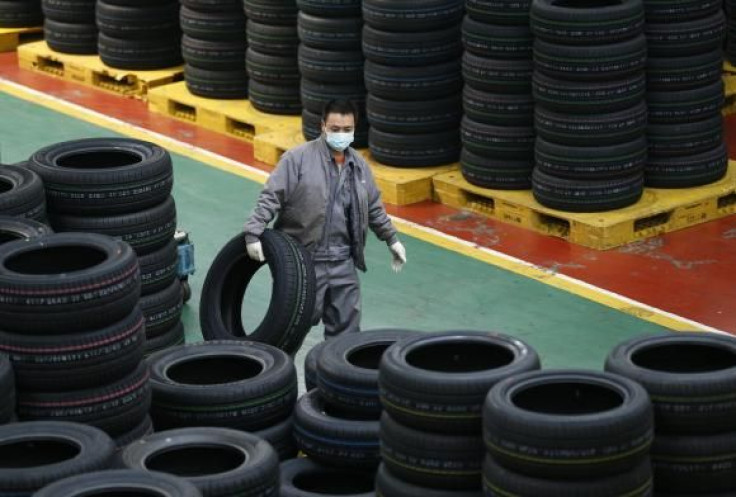China Feb. HSBC Flash PMI Hits 7-month Low Of 48.3 As Factory Activity Shrinks Again

Factory activity in China decreased again in February as employment slid at the quickest rate in five years, a preliminary private survey noted on Thursday.
The flash Markit/HSBC Purchasing Managers' Index (PMI) retreated to a seven-month low of 48.3 in February from January's final reading of 49.5. A reading under 50 shows a contraction while one above reveals expansion.
The final Markit/HSBC manufacturing PMI for February is due on March 3 and the official manufacturing PMI will be released on March 1.
The preliminary index for February got smaller in all categories save for delivery times of suppliers. The data indicates that the marginal easing that started in late 2013 hasn't let up in the world's No. 2 economy.
This month, the employment sub-index fell for the fourth month in a row, to 46.9, its unhealthiest point since February 2009, amid the worldwide financial crisis.
The frail China preliminary index for last month was considered to be a cause of January's selloff of emerging market assets, Reuters reported.
According to the survey, the new orders sub-index fell below 50 for the first time in seven months, while new export orders climbed higher than it did in January, but stayed less than 50.
"The building-up of disinflationary pressures implies that the underlying momentum for manufacturing growth could be weakening," said Qu Hongbin, chief economist for China at HSBC, in a comment accompanying the PMI data.
"We believe Beijing policymakers should and can fine-tune policy to keep growth at a steady pace in the coming year."
The Markit/HSBC PMI is weighted more toward smaller and private firms than the official index, which contains a greater amount of larger and state-owned companies.
The Lunar New Year festival, which started Jan. 31 and continued into early February, probably had an influence on factory output considering manufacturers closed up business then.
The government's continuing efforts at restructuring the Chinese economy toward domestic consumption and away from exports also had a role in the decrease.
Data pointing to a slowdown in China's Factory activity has emerged in the past few months. PMIs in January showcased expansion in China's manufacturing and services sectors at several-month or several-year lows, according to Reuters.
Still, those readings were countered by healthy growth in exports and bank lending, suggesting that China econony wasn't doing as bad as some had believed.
China's full-year growth for 2013 was 7.7 percent, steady from 2012 and just slightly above market expectations of 7.6 percent, which would have been the slowest since 1999.
© Copyright IBTimes 2024. All rights reserved.











